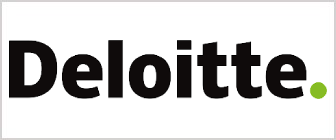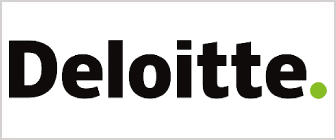What is the most significant change to your region’s/ jurisdiction’s indirect tax legislation in the past 12 months?
There was a great expectation that 2020 would be the year for Brazilian tax reform, an expectation that was frustrated, so far, mainly by the COVID-19 pandemic. Therefore, the main changes in the indirect tax legislation relate to the latest developments of leading cases and court disputes, especially on the PIS (Social Integration Program) and Cofins (Contribution for the Financing of Social Security) taxes. This includes the consolidation of precedents that helps companies recover the amounts related to their PIS and Cofins credits.
Also, there are some developments on the highly relevant case of the exclusion of the ICMS (State VAT) from the PIS and Cofins calculation basis. Most of the recent changes on this hot topic are based on positions adopted by tax authorities, taxpayers, and lower court cases, in a scenario that still awaits the final details on the application of the decision to be clarified by the Brazilian Supreme Court.
In strict connection with the COVID-19 pandemic, the main changes for indirect tax payments in Brazil only apply to federal taxes, with the postponement of due dates for PIS and Cofins payments. Also, some specific rates were reduced, specifically, for import duty and tax on manufactured products in cases where it was deemed vital for responding to the COVID- 19 pandemic.
On the tax compliance side, in the framework of the COVID -19 pandemic, the main change in Brazilian indirect tax compliance was the postponement of due dates for delivering electronic files from April 2020 to July 2020.
How do you anticipate that change impacting your work and the market moving forward?
Considering the consolidation in some precedents for PIS and Cofins, and the demand for cash triggered by the COVID-19 pandemic, there is a significant increase in assistance related to claiming tax credits. This demand, together with the needs of social distancing, will enhance the importance of the application of technology in all phases of work, not only for efficiency purposes now, but also to reduce health risks. This trend, which was already strong, will now be swiftly applied since the main resistance – more related to culture – was almost eliminated with most professionals working remotely.
What impact do you see the COVID-19 pandemic having on your work, directly, and on the wider tax environment, in both the short and long terms?
One of the main changes will be making everything, including tax-related work, more digital. Even in regions were the digital trend is strong and began a long time ago, like Brazil and other Latin American (LATAM) countries, there is a clear speeding up of the adoption of technology in the tax environment. Various countries in the world (especially in Europe and Asia) migrating faster to the digital tax environment, and the cultural change of working remotely will push towards the next level of tax digital transformation faster than anticipated.
In the long term, we can anticipate that real-time reporting of tax and financial information may change to real-time information on actual economic events, such as manufacturing outflow or digital transactions reporting straight to tax authorities. We can already see some small examples of such procedures in certain European and LATAM countries. This will reduce the time of processing information to determine the tax due on transactions, decrease the number of potential errors, and simplify compliance processes.
Given the likely long-term implications of COVID-19 on things like remote working and digital retail, how do you see tax technology developing to accommodate this new reality and where do you think the next area of focus might be?
Considering the changes in the business environment, undoubtedly, the level of sensitive information flowing in digital networks will increase dramatically. This sensitive information will also be vital for tax authorities and taxpayers, which will put pressure on balancing the level of detail needed to be informed and the required security of data handled in the digital environment. Regulations, such as the GDPR (General Data Protection Regulation) Europe, show the overall level of concern with the information security issue, and the number of cyber attacks reported reveals how fragile the digital environment security can be. Therefore, special focus will be given to properly securing the strategic information needed for tax payments and compliance, applying secure technology, but at a reasonable cost.
What potential other legislative changes are on the horizon that you think will have a big impact on your region/jurisdiction?
Tax reform in Brazil is a fundamental structural change for the country, and the need for this change has reached a consensus level not seen in recent years. However, there is still discussion on what will be the nature and extension of this change, with two main projects being discussed in the National Congress and several other suggestions being presented by nongovernmental entities.
Although still very uncertain, one can speculate that changes will come in the simplification of indirect taxes mainly at the federal level, where some taxes and contributions will be merged into one single tax. Also, changes in corporate income tax may be included, in an attempt to align rates and some specific procedures (such as transfer pricing calculations) to international trends.
What are the potential outcomes that might occur if those changes are implemented?
Besides the simplification of Brazil’s tax system – arguably the most complex in the world – there will be a transition period from the current system to the new system that may take five to ten years, depending on which project is approved. There is no expectation of significant changes to the tax burden itself, even though it may shift from one economic activity to another – the objective being to keep the overall tax collection the same.
Do you think that change will have a positive effect on both your practice and the wider regional/jurisdictional market?
Any change will have a negative short-term effect, mainly based on the uncertainty that a major modification will generate. In the mid-term and long-term, the change will be beneficial to the market since it will make doing business in the country more efficient and competitive. For the tax practice, a more efficient market will generate more opportunities and greater focus on value added work, making an impact in a very positive way.
What legislative changes would you like to see implemented that you think would have the most positive effect on your practice and the wider regional/jurisdictional market?
The simplification of indirect taxation would have a very positive impact on the simplification of compliance requirements, reducing the exposure to tax accessory obligation risks. This simplification would help focus the tax practice on adding value to the business, streamlining business processes to reduce tax leakage, and increasing the value of operations planning with the participation of the tax function.
Do you think something like that is likely to be implemented in the near future?
Yes, partially implemented, specifically when it comes to simplifying federal indirect taxes.
What have been the biggest developments in tax technology and where do you think the next area of focus might be?
The biggest development is the maturity level of analytics tools available, making it possible for tax professionals to use the massive data available to extract significant insights and manage tax risks proactively. The next area of focus would be to deploy the analytics capability to a broader database, made possible by the move to cloud Enterprise Resource Planning (ERP). The broader base will enable more advanced analyses, including running simulation scenarios (“before the fact”) and allowing studies with supply chain and/or clients’ data.



